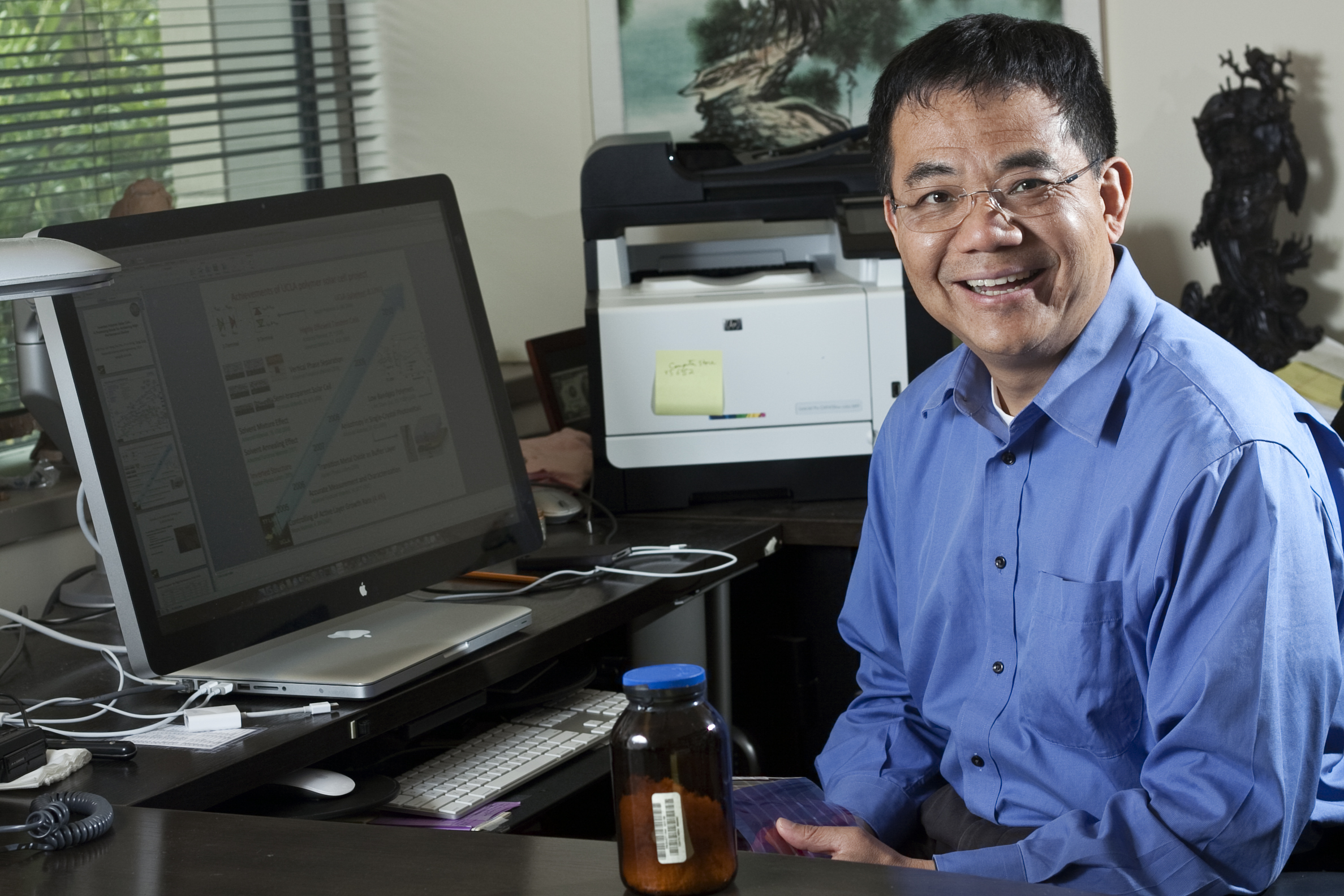Professor Yang Yang and his team of student researchers develop plastic solar cells in the hopes of using the technology in many practical applications

Professor Yang Yang of the Materials Science Department recently developed new solar panel technology using certain chemical compounds.
Read the rest of the stories from Fuel for Thought
HercUCLAs works to advance hydrogen fuel cell research with go-karts
By Daniel Morizono
May 18, 2011 12:58 a.m.

The flexibility of plastic solar cells allows them to be used to power portable electronics or even be woven into smart fabrics on backpacks, tents, sails, or jackets. They also can be mounted on building windows.
Inside the Yang laboratories, one student places a solar cell under a sunlight simulator, a device that reproduces natural sunlight. After a few seconds, he is able to determine how well the cell transforms the sun’s energy into electricity.
He is one of several dozen researchers conducting research in the field of organic solar cells under materials science and engineering Professor Yang Yang.
While most solar panels are made from silicon, which increases manufacturing costs, Yang and his researchers focus on developing solar cells from organic photovoltaic technology, which uses plastic in place of metal.
This UCLA technology is now used by Solarmer, a solar energy company that houses a number of Yang’s research group.
Solarmer Energy, Inc. was founded in 2006 to commercialize the use of organic photovoltaics and make it comparable to conventional fuel costs, said Vishal Shrotriya, director of technology for Solarmer and a former member of Yang’s lab.
Solarmer is currently in a pilot-production stage, and the company expects to begin issuing products next year, Shrotriya said.
At Solarmer, Yang initially served as the El Monte-based company’s “chief scientist,” and since 2006 they have jointly developed seven patents. In recent years, Solarmer has become more independent of Yang’s guidance, issuing numerous patents of its own.
Prior to coming to UCLA in 1997, Yang worked at UC Riverside as a postdoctoral researcher and at the UNIAX Corporation as a research staff member. He began work with organic solar cells in 2002 after one of his students conducted a solar energy research project.
With the high price of oil and the environmental and geopolitical issues associated with fossil fuels, solar energy will be an important alternative fuel source in the future, Yang said.
This energy has many practical applications. Transparent solar film could someday be attached to windows, allowing light to pass through while providing power to a building, he said.
Plastic solar cells could also power portable electronic devices such as mobile phones, laptops and GPS devices. These solar cells have a lifespan of one to three years and are less than 0.5 millimeters thick, according to Solarmer’s website.
Using UCLA’s technology, Solarmer has increased organic solar cell efficiency to around 8 percent ““ a world record, Yang said.
But Yang’s goal is to increase efficiency to 15 percent, at which point the technology will be cost-effective.
“Then I can retire,” he said.
Although the most efficient silicon-based solar cells are able to convert 43 percent of the sun’s energy, the cost to build these cells is extremely high, Yang said.
“People would probably steal them off your roof,” he said.
Yang and his researchers work out of laboratories in the Engineering V building and the California NanoSystems Institute.
His team consists of graduate students, post-doctoral students, undergraduate interns and several visiting scholars, said doctoral student Jun Yang.
Yang Yang said he puts great emphasis on motivating his students to challenge new ideas and pursue research grants.
“We are encouraged to do any experiment and explore new research,” Jun Yang said. “Professor Yang is very helpful in our research life and also inspires us a lot.”

